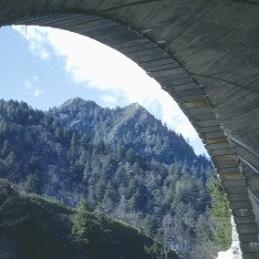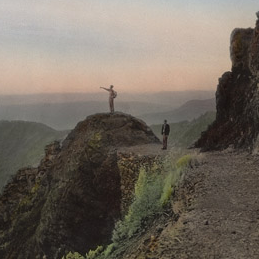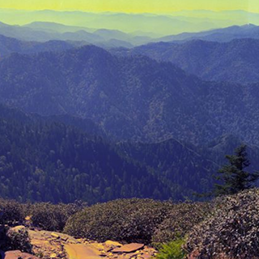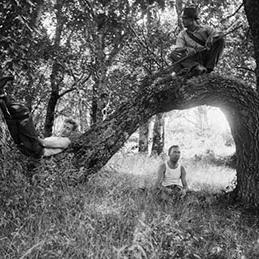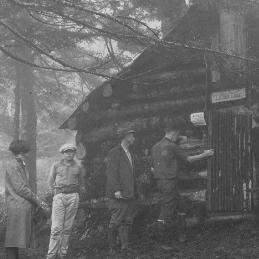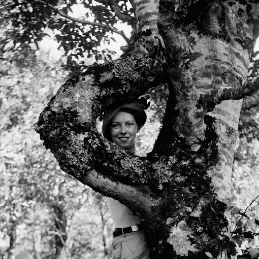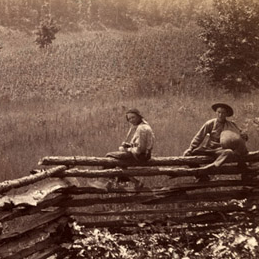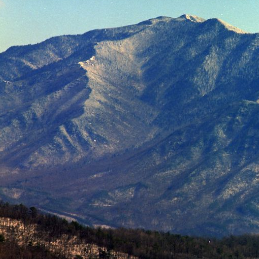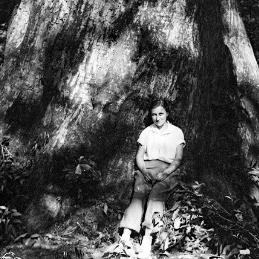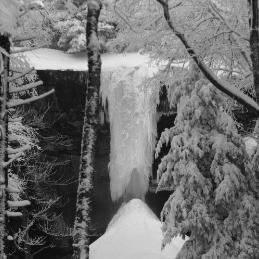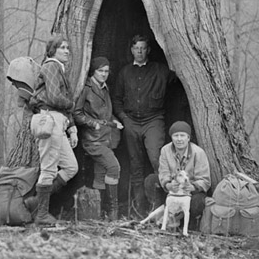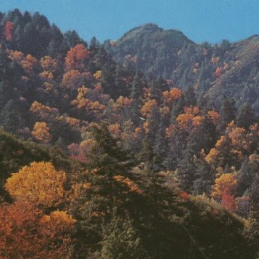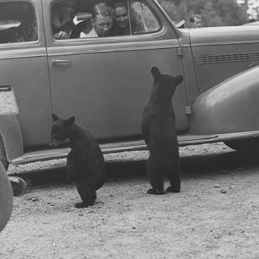Browse
"Trail Erosion Patterns in Great Smoky Mountains National Park." Environmental Management 3, no. 5 (1979): 431-445.
"The Status of Botanical Information on National Parks in the Southeastern United States." Castanea 47, no. 2 (1982): 137-147.
"Songs of the Sacred Harp." The Tennessee Conservationist 44, no. 6 (1978): 22-24.
"The Response of Understory Herbs to Soil Depth Gradients in High and Low Diversity Communities." Bulletin of the Torrey Botanical Club 103, no. 4 (1976): 165-172.
"Resource Division in an Understory Herb Community: Responses to Temporal and Microtopographic Gradients." The American Naturalist 110, no. 974 (1976): 679-693 .
"The Rate of Woody Plant Invasion on Two Grassy Balds." Castanea 45, no. 2 (1980): 75-87.
"Rare Plant Management -- After Preservation What?" Rhodora 82, no. 829 (1980): 49-75.
"Possible Ecological Mechanisms for Loss of Vernal Herb Diversity in Logged Eastern Deciduous Forests." Ecological Applications 5, no. 4 (1995): 935-946.
"Patterns of European Wild Boar Rooting in the Western Great Smoky Mountains." Castanea 47, no. 3 (1982): 230-242.
"Island Biogeogrpahy and Preserve Design: Preserving the Vascular Plants of Great Smoky Mountains National Park." Natural Areas Journal 3, no. 4 (1983): 4-13.
"Grassy Balds of the Great Smoky Mountains: Their History and Flora in Relation to Potential Management." Environmental Management 3, no. 5 (1979): 417-430.
"Firewood-Gathering Impacts in Backcountry Campsites in Great Smoky Mountains National Park." Environmental Management 6, no. 1 (1982): 63-71.
"Effects of Disturbance by Visitors on Two Woodland Orchid Species in Great Smoky Mountains National Park, USA." Biological Conservation 31, no. 3 (1985): 211-227.
"The Effect of the European Wild Boar (Sus scrofa) on the High-Elevation Vernal Flora in Great Smoky Mountains National Park." Bulletin of the Torrey Botanical Club 101, no. 4 (1974): 198-206.
"The Effect of the European Wild Boar (Sus scrofa) on Gray Beech Forest in the Great Smoky Mountains." Ecology 56, no. 6 (1975): 1356-1366.
"Disturbance and Vegetation Response in Relation to Environmental Gradients in the Great Smoky Mountains." Vegetatio 55, no. 3 (1984): 129-139.
"A Comparison of the Beta Diversity Functions of the Overstory and Herbaceous Understory of a Deciduous Forest." Bulletin of the Torrey Botanical Club 102, no. 2 (1975): 55-60.
"Biological Monitoring in UNESCO Biosphere Reserves with Special Reference to the Great Smoky Mountains National Park." Biological Conservation 13, no. 2 (1978): 105-114.
"Agricultural Area Impacts WIthin a Natural Area: Cades Cove, A Case History." Environmental Management 4, no. 5 (1980): 433-448.
"After Preservation: Philosophical and Practical Problems of Change." Biological Conservation 18, no. 4 (1980): 241-255.
Impacts of White-tailed Deer on the Vegetation of Cades Cove, Great Smoky Mountains National Park. Vol. Report for the Superintendent. Department of the Interior, National Park Serice, 1980.
Wild Hogs in the United States -- Origin and Nomenclature In Research & Management of Wild Hog Populations: Proceedings of a Symposium. Georgetown, South Carolina: Belle W. Baruch Forest Science Institute of Clemson University, 1977.
Impacts of White-tailed Deer on the Vegetation of Cades Cove, Great Smoky Mountains National Park In Proceeding of the Annual Conference South East Association of Fish and Wildlife Agencies 33., 1979.
The Effect of the European Wild Boar on the Flora of the Great Smoky Mountains National Park In Research & Management of Wild Hog Populations: Proceedings of a Symposium. Georgetown, South Carolina: Belle W. Baruch Forest Science Institute of Clemson University, 1977.
"Rooting Impacts of the European Wild Boar on the Vegetation of Great Smoky Mountains National Park During a year of Mast Failure." In 2nd. Conference on Scientific Research in the National Parks, 276-293. San Francisco, California, 1979.


